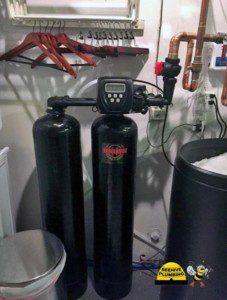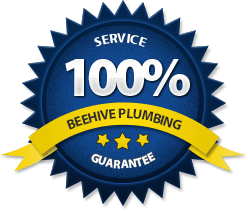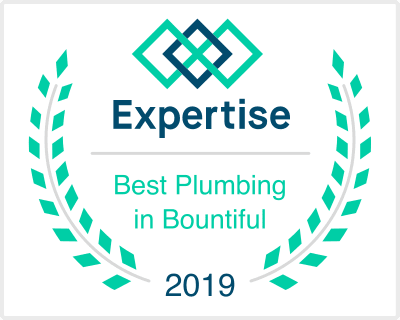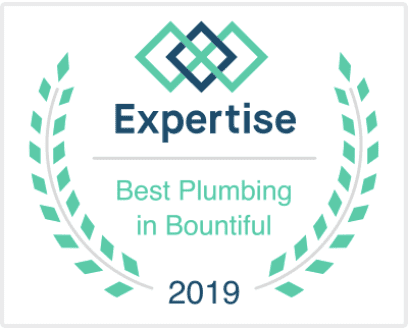Water filter…water softener…ugh! What’s the difference? They sound like just two names for the same equipment. But, they’re not. It’s a common mistake to think that the two terms and the treatment processes they indicate mean pretty much the same thing. And, the differences can be confusing to those uninitiated in the ways of water treatment.
Actually, the two kinds of equipment, and the specific water treatment systems they involve, and the problems they are designed to solve are very different from one another. Depending upon the particular concerns you have, you may need only one or both kinds of systems for removing unwanted contaminants from the water you use in your home or business.
What is Contaminated Water?
The first point to settle is what is in your water that needs to be addressed by water treatment. Pure water is just hydrogen and oxygen (H20). But, typically, other chemicals, as well as excesses of various minerals, and a vast variety of impurities are collected in water. Water coming through faucets may contain:
- Calcium carbonate
- Magnesium
- Iron
- Lime scale
- Rust
- Sulfide
- Chlorine
- Bacteria
- Viruses
- Herbicides
- Pesticides
- Industrial waste
- A wide variety of other contaminants
The above contaminants can vary in amounts from small trace amounts to extreme degrees of contamination.
When Should You Consider Installing a Water Treatment System?
If your municipal water system is outdated, or if development in your area has exceeded the public water system’s capacity to provide ideally treated water to homes and businesses, it may be time to obtain your own water treatment system.
The appropriate system to help reduce risks to your health or to your home plumbing and fixtures depends upon which water contaminants are present in the water coming through your faucets.
What is a Water Softener?
Water softeners are essentially systems that reduce the amount of hard minerals passing through your home’s plumbing and going into appliances or out of faucets. These systems are designed to remove scale, primarily of calcium and lime, from building up in the various places in your home or business where hard water can cause corrosion, clogs, leaks, or other property damage over time:
are essentially systems that reduce the amount of hard minerals passing through your home’s plumbing and going into appliances or out of faucets. These systems are designed to remove scale, primarily of calcium and lime, from building up in the various places in your home or business where hard water can cause corrosion, clogs, leaks, or other property damage over time:
- Inside your plumbing pipes
- Interiors and exteriors of your plumbing fixtures
- Refrigerators with water dispensers or ice makers
- Coffee pots
- Dishwashers
- Clothes washing machines
- Air humidifiers
- Evaporative cooling systems
- Swimming pool surfaces and equipment
- Other appliances or equipment that intakes water for its processes.
Water Softener Benefits
There are numerous benefits from reducing scale in your water, including:
- Cleaner dishes, flatware, faucets, and shower heads
- Improved quality of drinking water
- Laundry and bath soaps work much more efficiently
- Cleaner clothes, skin, and hair
- Life expectancy of your appliances can be significantly increased
Keep in mind that water softeners do not eliminate the kinds of impurities from your drinking water that a water filter is designed to remove. They are exclusively for reducing hard minerals in water to help protect your homes’ assets.
How Do Water Softeners Work?
Some types of water softeners use ion-exchange resins and salt to remove calcium or other hard minerals from water. A sodium solution is used to coat the resins. When hard water passes between the resin beads, the unwanted minerals migrate from the solution onto the resin and are thereby replaced by sodium ions in the solution.
For people who prefer an alternative to adding chemicals or salt to their home’s water, salt-free water softening alternatives are available. No-salt systems use a high-tech ceramic medium to isolate hardening properties in water and neutralize them without backwashing or regeneration, or any need for electricity. These benefits mean that 100% salt-free systems are:
- More natural
- Easier to maintain
- Healthier
- More eco-friendly
When Should You Choose a Water Softener?
If it is determined that your home or business has significantly hard water, you may choose to protect your plumbing and appliances against damage from build-up of scale from hard water in water-use areas of your home.
What is a Water Filter?
“Water filter” is a term more broadly used to refer to any kind of water treatment system. After all, every water treatment system does perform a certain version of filtering. So, the term applies to all water treatment methods, only in a very general sense. But, a water filter is also the name given to a specific kind of filtering system designed to remove one or more of a certain class of contaminants from water. There are many different configurations of water filters, including:
- Under-sink filters
- Water filter coolers
- Countertop water filters
- Whole house water filters
Types of water filtering systems cover a broad spectrum, including sediment filters, iron and sulfur filters, backwashing carbon filters, fluoride adsorption filters, and many others. Water filters help to reduce or remove the kinds of impurities that water softeners do not affect, including:
- Lead
- Copper
- Magnesium
- Chlorine
- Nickel
- Mercury
- Chromium
- Iron
- Fluoride
- Hydrogen sulfide
- Numerous other impurities
Water filters help inhibit increased development of fungi, algae, and bacteria to some extent. However, a water filtering system should not be used as the complete solution for removing viruses or bacteria. (A water purifier is necessary for an effective process to more reliably manage much more extreme water problems.)
How Does a Water Filter Work?
There are various technologies available for water filtration. In basic terms, most water filters start their processes by either convert or trap the target contaminants in one of many kinds of media. Cleaning is then accomplished either by replacing a filter cartridge or by backwashing cycles.
For microbial filtering, water may be sterilized by using ultraviolet lamps to destroy the DNA of the microbes. UV light is effective in destroying viruses and bacteria. Or, a sieve and membrane, or screen filtration process may be used to filter out a broad range of pollutants.
When Should You Choose a Water Filter?
If your home has other problems with water pollutants, such as bacteria, lead, chlorine, or mercury contamination, you may need a whole-house filtration system designed to treat such specific issues.
When Should You Use Both a Water Softener and a Water Filtering System?
You may need only protection against the damaging effects of scale build-up from hard water. If so, then a water softening system alone is likely to be sufficient protection for your home.
However, if your plumbing fixtures or appliances show evidence of iron staining from your water, or it is determined that your water has contamination problems from bacteria, chlorine, or other pollutants in the class of those requiring filtration to resolve, you may need whole-house water filtration.
It is very common for property owners to have both a water softening system and a whole-house filtration system in order to adequately treat water coming into their homes or businesses.
Today’s state-of-the-art whole-house water softening and filtration systems are very efficient in removing contaminants across the spectrum. Integrated set-ups designed to provide comprehensive solutions typically provide more complete filtration coverage.
These water treatment systems last for a very long time, and they can be surprisingly affordable. Together, these benefits make a water treatment system a very strong home improvement investment to protect your home and your health.
Choose Beehive Plumbing for All Water Treatment System Repairs, Replacements, and Installations in Utah
Our Beehive Plumbing professionals come fully equipped to complete your water treatment system installation or repair as quickly as possible, including all plumbing work involved. And, our master plumber will efficiently install your water treatment system and ensure that it is calibrated to meet your home’s needs and is operating optimally.
A Beehive expert will help you determine whether or not a water treatment system is appropriate for your home or business, and if so, which kind of system you need. All options will be thoroughly explained, to make sure that you have all information you need to make a fully informed decision on water treatment alternatives for your home or business. And, we will provide you with a free cost quote.
Our Beehive master plumbers provide complete home and business plumbing repairs in Salt Lake City and throughout Utah. We offer our customers a range of important benefits, including:
- Water testing and assessment
- Water treatment systems installation
- Complete range of plumbing services for any needs
- 24-hour emergency plumbing service, 7 days per week
- All plumbing services guaranteed
- Same-day service
- Affordable financing
If you would like more information on the most appropriate water treatment system for your needs, or to schedule an appointment for Utah plumbing repair for your business or home, contact Beehive Plumbing today! Feel free to give us a call at 801-661-8155.













